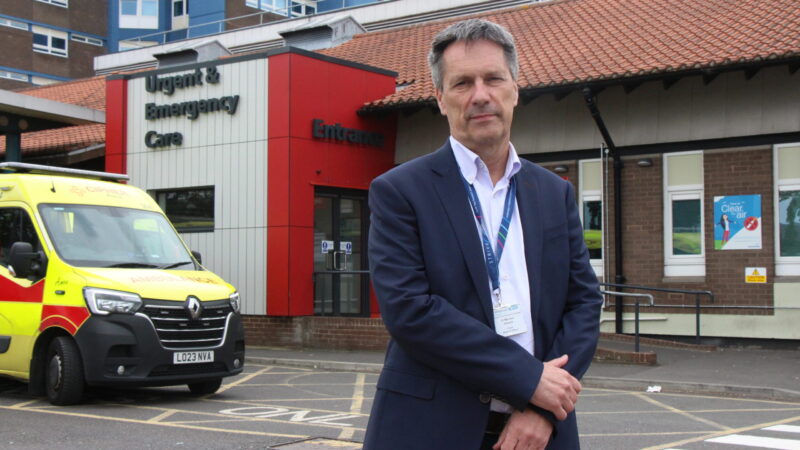
A huge increase in patients with flu has led to a local health group appealing for the public to get vaccinated against the potentially deadly virus.
University Hospitals Tees has seen the number of patients admitted to hospital ill with flu increase to more than 100 per week in December.
Flu is serious
Mike Stewart, group chief medical officer, said: “Flu can be a really serious illness. It’s not just a cold.
“We have seen hundreds of patients over the last few weeks with flu, most requiring oxygen therapy and some so ill, often with pneumonia as a complication, they require treatment in our high dependency and intensive care units. This is a continuing trend and we are expecting this pattern to continue throughout January so this is far from over.
“If you haven’t been vaccinated yet, I would urge you to get the vaccine as soon as possible. It’s not too late to benefit from this. It’s safe, effective and for many people it’s free of charge.
“Even if you have to pay for it, it’s a small price to pay to avoid this potentially life threatening illness.
“The vaccine is the best way to protect yourself and those around you.”
Get vaccinated
People can call 119 free of charge to find pharmacies offering vaccinations up until Friday 31 January.
If you have flu:
- Drink plenty of fluids to avoid dehydration
- Take paracetamol for fever or aches and pains
- If you feel like eating, eat foods that are easy to digest, like soup
- Stay at home if you can
Contact your GP if:
- Your symptoms last longer than a few days
- You already have a serious illness
Masks
Mike continued: “Hospitals and emergency departments throughout the region are facing some real pressures, as are our colleagues in the ambulance services. We will always be here for seriously unwell patients but we do ask that for anything non-life threatening people first try their local community pharmacy, 111 online or by phone, an urgent treatment centre or GP practice.
“When in hospital, we have been asking some patients if they would be willing to wear a mask to help protect themselves as well as help prevent the further spread of infection. This is one of a number of measures we ask staff, patients and visitors to carry out to help stop infections.
“Wearing a mask is not mandatory of course and our clinical teams will always ensure all other precautions are also taken.”